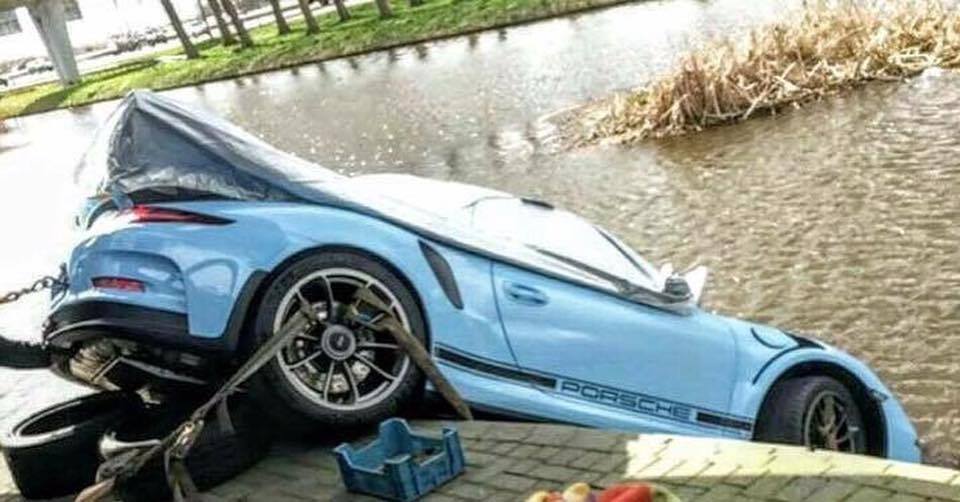The Unthinkable: A Porsche With No Brakes
Share

When one thinks of Porsche, the phrase "high-performance engineering" typically comes to mind. With sleek designs, powerful engines, and the promise of an exhilarating driving experience, Porsches have earned their reputation as a premier sports car. But what happens when you strip away one of the most critical components of a car—the brakes? In this post, we’ll delve into the wild concept of a Porsche with no brakes, exploring not just the technical aspects but also the implications and potential scenarios that would unfold.
The Braking System: An Overview
Before we can fully grasp the idea of a Porsche with no brakes, it’s essential to understand how a typical Porsche braking system functions. Most modern Porsches are equipped with either standard or ceramic disc brakes that leverage hydraulic systems to provide stopping power. The weight, design, and materials used in these brakes are crucial for ensuring that the vehicle can safely decelerate from high speeds.

In a Porsche, the engineering of the braking system is as sophisticated as the engine itself. For instance, the 911 series boasts advanced features such as Porsche’s PCCB (Porsche Ceramic Composite Brake) system, which delivers reduced weight and improved performance, especially in high-temperature situations like track racing.
Imagining a Porsche with No Brakes
Now, let’s entertain the thought of a Porsche without brakes—what would that really mean? It would be a scenario unlike any other, challenging not just the engineering limits but also the very nature of driving.
-
Speed and Control: A car designed for performance, like a Porsche, thrives on speed. The absence of brakes would mean that the driver must rely solely on the engine's deceleration and the road conditions to slow down. This might sound thrilling, but it could become a recipe for disaster!
-
Engineering Challenges: Creating a Porsche with no brakes would require rethinking many aspects of its design. For instance, would the engineers need to incorporate some form of fail-safe systems, such as parachutes or advanced traction control? The traditional aspects of vehicle control would be tossed out the window.
-
The Driving Experience: Removing the ability to brake would alter the very essence of what driving a Porsche feels like. Rather than mastering the perfect line through a corner or executing a flawless heel-toe downshift, driving would become an exercise in avoiding catastrophe. For car enthusiasts, this creates a fascinating paradox—how do you enjoy the drive without essential safety features?

The Implications of No Brakes: Safety and Regulation
In automotive engineering, safety is non-negotiable. Cars with no brakes would likely face significant legal challenges, especially regarding safety regulations. Lawsuits regarding hurt drivers, accidents, and damage would abound, leading to immeasurable complications for both the manufacturer and car owners.
-
Safety Testing: No brake systems might necessitate entirely new forms of safety testing and regulation. Understanding how well the car can handle abrupt stops without conventional brake systems would require innovative approaches to crash testing.
-
Insurance Questions: Imagine trying to insure a high-performance vehicle designed with no brakes! Insurance companies would undoubtedly be perplexed, and coverage options would likely be minimal if offered at all.
-
Track Days and Events: For enthusiasts keen on taking their Porsches to the track, the absence of brakes would banish any chances of participating in closed-course events. Tracks prioritize safety, and vehicles without brakes would be deemed unsuitable for competition.

The Future of Driving: Concepts and Innovation
Interestingly, this thought experiment opens up avenues for futuristic driving technology. With advances in artificial intelligence and automation, vehicles could some day utilize alternative methodologies to simulate deceleration without traditional brakes.
-
Electric and Autonomous Vehicles: Many contemporary cars employ regenerative braking systems, especially electric models. These systems might produce a similar effect to “braking” without traditional brake components. Perhaps a future Porsche will incorporate AI technologies that autonomously control speed and handling without conventional brakes.
-
Magnetic Systems: Advanced theoretical designs might incorporate magnetic systems that create resistance, essentially slowing the car without friction-braking components. Imagine a Porsche that utilizes magnetic levitation to gently decrease speed.
-
Manufacturers’ Innovations: Auto manufacturers, including Porsche, continually innovate to develop safer, faster, and more efficient braking systems. The move towards more involved systems could lead to a Porsche design that does not rely on brakes in a conventional sense—a concept that is as exciting as it is radical.

Conclusion
While the thought of a Porsche with no brakes is mind-boggling, it serves as an engaging exploration of automotive limits and the spirit of innovation within the industry. The intricate balance of speed, control, and safety exemplified by Porsche will never go out of style.
As automobile enthusiasts, our fascination often lies in imagining the unimaginable—pushing the boundaries of what cars can be. However, in doing so, it's vital to appreciate the craftsmanship and engineering that ensures every ride in a Porsche remains exhilarating yet safe. Whether you are a casual fan or a devoted enthusiast, the essence of Porsche lies in the thrill of the drive, enriched by the aspects that keep us in control of our beloved machines.